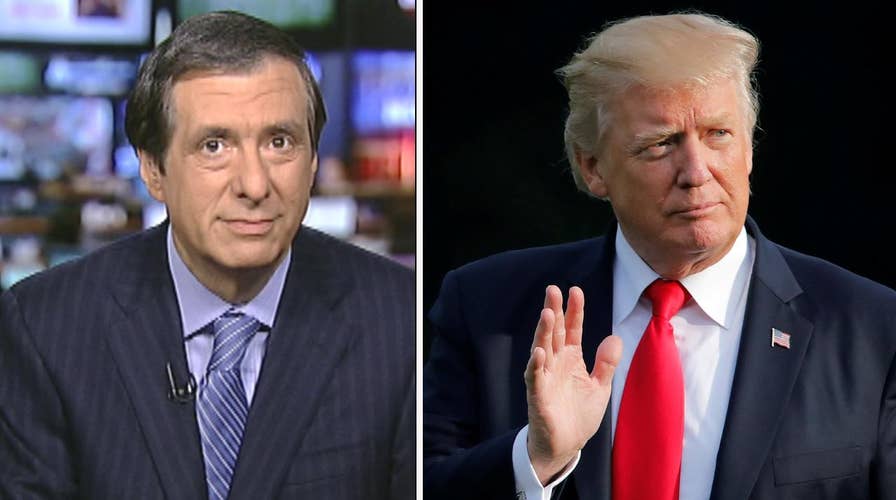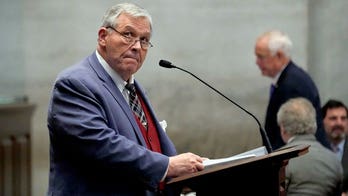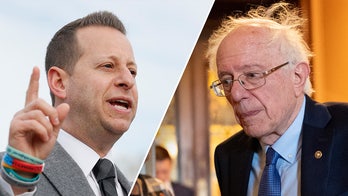Kurtz: Are the President’s people defying him?
'MediaBuzz' host Howard Kurtz weighs in on the new mainstream media narrative that President Trump's cabinet members are defying him
Are President Trump’s top lieutenants revolting against his policies?
Or is that a narrative cooked up by the media?
Three incidents—involving Rex Tillerson, Gary Cohn and Jim Mattis—have created a tipping point for this emerging story line.
I happen to think it’s within the president’s discretion not to dump Cabinet officers or senior White House officials for distancing themselves from him, as long as it’s not a pattern and he thinks they’re doing a good job.
But some Trump allies tell me they think one or more of the dissenters should have been fired and that it reflects the president’s weakened position. In this view, Tillerson in particular committed an act of insubordination.
You might think that the onetime star of “The Apprentice” would be quick to show subordinates the door if they can’t get with the program. But there’s a degree of realpolitik involved: dumping the secretary of State or Defense would cause a huge uproar and it would take a couple of months or more to get a replacement confirmed.
It’s not hard to find lots of stories about these internal tensions.
“Two of President Trump's highest-ranking Cabinet officials just took a giant step backward from their boss, raising the question of whether Trump's inner circle is seriously considering abandoning him,” the Washington Post says, adding that it’s “rare for so many advisers to speak out so publicly against their boss, and in such stark terms, on matters of such magnitude.”
A Politico piece is headlined “Trump Unusually Silent After Aides Challenge Him.”
“Some close to Trump note that he needs Cohn and Tillerson, seen as stabilizing forces in his administration, more than they need him at this point,” says Politico.
In case you’ve been concentrating more on Hurricane Harvey than White House machinations:
On “Fox News Sunday,” Chris Wallace asked Tillerson about Trump’s both-sides formulation about the violence in Charlottesville.
“The president speaks for himself,” Tillerson said.
Asked if he was separating himself from his boss, the secretary said: “I’ve made my own comment as to our values.”
In the wake of Charlottesville, Cohn, Trump’s chief economic adviser, said he was speaking out as a Jewish American and that “this administration can and must do better in consistently and unequivocally condemning these groups and do everything we can to heal the deep divisions that exist in our communities.”
The Mattis episode is slightly different in that he was addressing some troops and the video surfaced on Facebook. The Pentagon chief said America would “get the power of inspiration back…Our country right now, it’s got problems we don’t have in the military … You just hold the line until our country gets back to understanding and respecting each other and showing it.”
Mattis is also acting as a bit of a brake on his boss. After Trump tweeted that “the U.S. has been talking to North Korea, and paying them extortion money, for 25 years. Talking is not the answer!", Mattis offered a different message. “We’re never out of diplomatic solutions,” he told reporters. Mattis is also slow-walking the proposed Trump ban on transgender people serving in the military.
The retired general, for his part, told reporters yesterday that “we all have an obligation to serve ... First time I met with President Trump, we disagreed on three things in my first 40 minutes with him, on NATO, on torture, and on something else, and he hired me,” Mattis said.
Each incident is different, but collectively they convey a sense that Trump’s inner circle isn’t shy about speaking out.
National Review Editor Rich Lowry argues that these are firing offenses: “The president is experiencing a bout of insubordination from his top officials the likes of which we haven't witnessed in the modern era.”
Lowry also says Trump aides may have been emboldened by Jeff Sessions hanging on as attorney general despite the president’s public criticism of him. But, he says, “nothing good can come from top officials of the U.S. government making it obvious that they believe, to borrow Tillerson’s phrase, that the president speaks for himself—and no one else.”
Viewed in a positive light, you could say Trump has enough confidence that he’s giving his top deputies an unusual amount of leeway to disagree with him.
Viewed in a negative light, you could say Trump’s senior aides feel the need to distance themselves from him without fear of consequence.
But either way, it’s hard to miss at this point.





